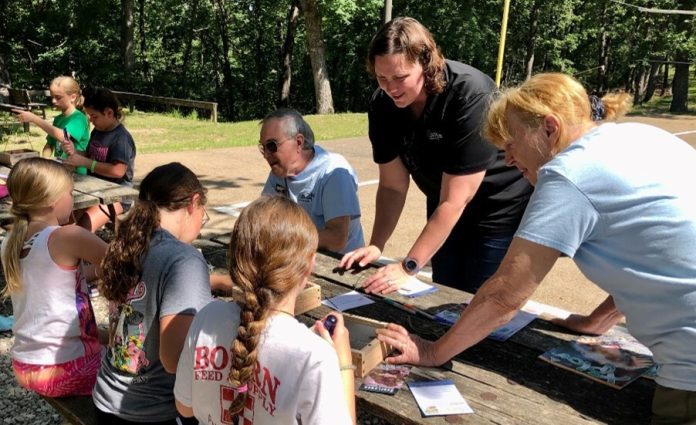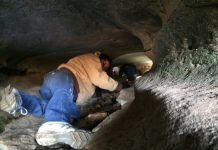
JEFFERSON CITY, Mo. — The Missouri Department of Conservation (MDC) and MU Extension thank the Missouri Master Naturalists for volunteering thousands of hours to conserving Missouri’s natural resources in 2023.
Missouri Master Naturalists participate in a chapter-based natural resource education and volunteer program within their community that is sponsored by MDC and MU Extension. They sometimes assist with MDC research or conduct habitat improvement projects, but they often serve at educational or special-event programs that are conducted with numerous chapter partners within the community. Participants first must enroll in a core training with approximately 40 hours that is focused on Missouri’s ecological systems and conservation. Core training is conducted at the chapter-level and led by chapter advisors with both MDC and MU Extension. Master Naturalist chapters provide a corps of well-informed volunteers to serve nature and natural resources in their community.
According to Bob Pierce, Program Coordinator with MU Extension, there are 12 Missouri Master Naturalist Program chapters, : Boone’s Lick in Columbia, Chert Glades in Joplin, Confluence in St. Charles, Great Rivers in St. Louis, Hi Lonesome in Cole Camp, Lake of the Ozarks in Camdenton, Loess Hills in St. Joseph, Meramec Hills in Rolla, Miramiguoa in Washington, Mississippi Hills in Hannibal, Osage Trails in Kansas City, and Springfield Plateau in Springfield.
2023 HIGHLIGHTS
Rebecca O’Hearn, MDC Program Coordinator for Master Naturalists, reports that during 2023, 177 volunteers participated in the Core Training Course conducted by the Miramiguoa, Great Rivers, Confluence, Osage Trails, Mississippi Hills, Boone’s Lick, and Lake of the Ozarks Chapters. The St. Louis Chapter hosted both a spring and fall training for the first time.
Through 2023, with combined efforts of the 12 chapters, 3,115 volunteers have been trained as Missouri Master Naturalists since the program was first organized in 2004.
During 2023, volunteers provided 71,249 hours of service to local communities – an increase of more than 14,000 hours of service from the previous year. Since 2004, Master Naturalists have volunteered more than 893,749 hours of service to local communities, says Pierce.
More than 855 volunteers became Certified Missouri Master Naturalists, maintained certification, or were active members in 2023.
The economic impact of the 2023 Missouri Master Naturalist volunteer service is valued at $2,621,436. The cumulative economic impact of Missouri Master Naturalist volunteer service is valued at $26,433,297.
STATEWIDE PROGRAM HIGHLIGHTS
During 2023, Master Naturalists resumed their programs and events following the three-year global pandemic that made in-person meetings and indoor service activities a challenge. Chapters received numerous offers to enter new partnerships, options for service projects were abundant, and chapters returned to in-person meetings.
The waitlist for prospective new Master Naturalists that accumulated over the pandemic is steadily declining as chapters offer annual and bi-annual core training classes.
Many chapters participated in seed collections, native plantings, and invasive plant control with partner organizations in their local communities. For example, the Osage Trails Chapter collected 93-pounds of seeds in partnership with Dunn Ranch during 2023.
Education and outreach programs are a staple of the Master Naturalist Program, and all chapters contributed to this goal during 2023. One exceptional highlight is the Mississippi Hills Chapter that provided over two-dozen guided educational hikes for their local partners and communities.
Chapters were also highly active with citizen science projects. Thirty Master Naturalists assisted with MDC’s Chronic Wasting Disease (CWD) surveillance. Volunteers also helped with MDC’s Eagle Watch Program, bat counts, and herpetology surveys. Other citizen science activities included Audubon’s Christmas Bird Count, Missouri Stream Teams, and the Bumble Bee Atlas.
Read more about the Missouri Master Naturalist chapters’ accomplishments and highlights in the 2023 Annual Report, available online at https://extension.missouri.edu/programs/missouri-master-naturalist.
To learn more about the Missouri Master Naturalist Program and how to get involved, visit https://extension.missouri.edu/programs/missouri-master-naturalist/missouri-master-naturalist-overview/faq-about-missouri-master-naturalist.















